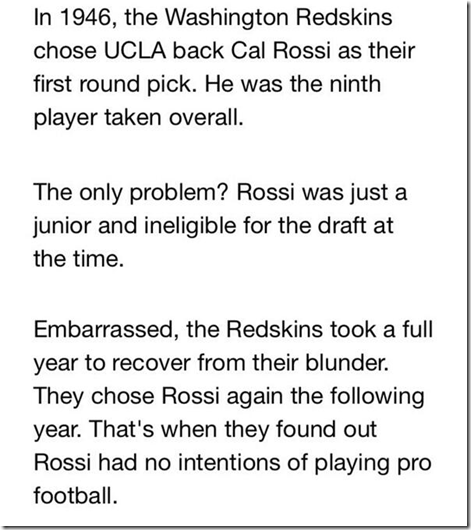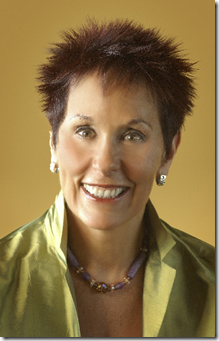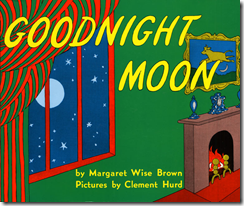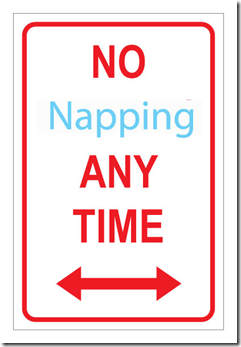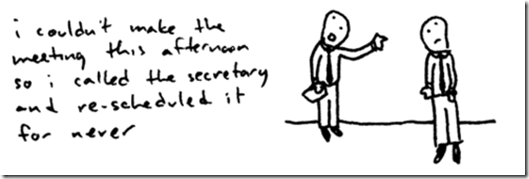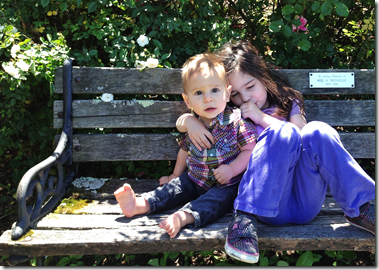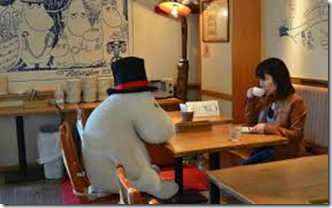Matthew Dicks's Blog, page 401
May 11, 2014
The NFL draft is kind of dumb. But this story is AWESOME.
I do not enjoy the NFL draft. Even though I’m an enormous fan of the Patriots and the National Football League, the endless predictions and prognostications leading up to the draft strike me as the biggest waste of time on the planet.
They serve no purpose.
The expert’s mock drafts are never correct. Even if they ranked the players in the correct order (which they never do), all it takes is one trade (which there always is) to render their already inaccurate mock drafts moot.
Even after the draft, there is no telling how these former college players will perform. First round players go bust all the time. Undrafted free agents become Hall of Famers.
There’s no telling until these players take the field.
I just wait until these players take the field. Then I watch.
That said, this is my favorite NFL draft story of all time.
Speak Up storyteller: Doreen Stern
Our next Speak Up storytelling event is on Saturday, March 29th at Real Art Ways in Hartford. Doors open at 7:00 PM. The show begins promptly at 8:00 PM.
There are still some tickets available, though we are expecting a sell out, so purchase them now before it’s too late. Tickets available here.
This week we introduce the storytellers who you will be hearing from on Saturday night. Hope to see you there!
______________________________________
Doreen Stern holds a Ph.D. in public policy and two master’s degrees. She’s been a researcher at UConn and the University of Pennsylvania, a sales and marketing consultant for a Fortune 500 company, and director of New Hampshire’s largest child care program. And before that, she was co-director of the Sivananda Yoga Center in Washington, D.C.
Wanting to improve her public speaking skills, Doreen joined Toastmasters in 2005. Since then, she’s delivered 63 speeches through Toastmasters and another 50 at businesses and libraries, speaking on “Change Your Life in 17 Minutes.” People describe her as funny and revealing.
May 10, 2014
Speak Up storyteller: Alan MacKenzie
Our next Speak Up storytelling event is on Saturday, March 29th at Real Art Ways in Hartford. Doors open at 7:00 PM. The show begins promptly at 8:00 PM.
There are still some tickets available, though we are expecting a sell out, so purchase them now before it’s too late. Tickets available here.
This week we introduce the storytellers who you will be hearing from on Saturday night. Hope to see you there!
______________________________________
Alan MacKenzie was born on a naval base in the Philippine islands on New Year’s Day. He grew up on his grandparent’s citrus ranch in southern California. While his father was fighting in the Pacific, he learned to love raising animals, creating things, working hard and playing outdoors. His grandfather, a self-made man, was his mentor, role model and father figure.
During his elementary and high school years, his family moved back and forth between California and Washington D.C. He graduated from Princeton, got an MBA from Stanford and was a Sloan Fellow at MIT.
After working 25 years in large corporations, he burned out and left to start my own business, Street Smart Ventures. He create entrepreneurial projects that teach social and workplace skills to young adults facing barriers to work. He is an avid fly fisherman, hunter and wood carver who watches UConn basketball far too often for his wife, Carole, who is a Clinical Social Worker, Sex Therapist and Professor at the University of Hartford. Alan and his wife live in Hartford’s West End along with along with their two dogs, Posy and Virginia Woof.
Goodnight Moon with her little brother
I read Goodnight Moon (and most other children’s books) for the first time with my daughter, who immediately fell in love with the story, as much children do.
Now she puts her brother on her lap and “reads” the book to him.
I keep thinking how much better these moments will be when my daughter can actually read.
Still, incredibly cute.
May 9, 2014
Napping will kill you. Science says so.
A 13-year study published in the American Journal of Epidemiology has revealed that if you take naps during the day, you are more likely to die sooner than those who do not.
The study, which was performed by researchers at Cambridge University, studied the habits of over 16,000 men and women in Britain and found that those who take naps during the day are almost a third more likely to die before they turn 65.
The biggest risks come from respiratory problems that napping is likely to induce. People who slept during the day for more than an hour had more than double the chance of dying from a respiratory illness than those who didn’t nap at all.
I’ve always thought that napping was stupid.
A waste of time. A sign of weakness.
Now it’s deadly, too.
Productivity tip #6: Calculate the cost of your meeting and act accordingly
Planning a meeting?
Multiply the number of minutes you plan on speaking by the number of people attending the meeting and ask yourself:
Is the information that I am presenting worthy of the amount of salary and lost productivity that your meeting will cost?
For example, if you are conducting a meeting with 20 people that will last 90 minutes, you just cost the organization 30 hours of labor.
There are times when this is a wise investment.
There are many, many times when it is not.
Before calling a meeting, ask yourself the following questions:
How many hours of labor will this cost my organization?
How much is one hour of labor worth to my organization, both in monetary terms as well as lost opportunity costs.
Is the goal of the meeting worth the investment?
Are these hours and dollars better served in some other way?
Could the information being conveyed in this meeting be disseminated in a more efficient way?
If the numbers and the rationale equate, conduct your meeting.
If they don’t, cancel your meeting immediately for the sake of productivity.
May 8, 2014
College is possible for all. Even for those who graduate from high school and find themselves on their own.
Ron Lieber of the New York Times recent published a piece on paying for college entitled Eight Tips for Parents Who Have Saved Nothing for College.
While the information is valuable, I think it’s also important to remember that parents don’t always play a role in a person’s pursuit of higher education. For many reasons, high school graduates often find themselves living on their own following graduation with the desire to attend college but no support in place to help facilitate this process. These people need strategies, too, but it’s rare that I see the media address this issue.
Thankfully, some of the strategies that Lieber describes in the piece apply equally well to these kinds of students.
College was never mentioned in my home. No teacher or guidance counselor ever mentioned the word to me, either. For whatever reason, I was written off at an early age when it came to higher education, despite my excellent grades and bounty of extra-curricular activities.
I’ll never understand it.
If I wanted to attend college, I knew that I would have to find a way of getting there on my own.
Lieber suggests a gap year and possibility of military service. Both are reasonable options. I enrolled in the Army at seventeen but refused to sign my commitment papers at eighteen. Even though the military would’ve provided me with money for college once my enrollment had ended, I decided to try to make my way without committing to military service. Nevertheless, military service was a distinct possibility for me and would’ve provided me the funding that I needed for school.
Instead, I took a gap year.
Four gap years, to be exact, though it would’ve been two had I not been arrested and tried for a crime I did not commit. I was arrested just a couple months before I was slated to enroll in Bridgewater State University in Bridgewater, Massachusetts. Instead of attending school, I was forced back into the workforce, working 18 hours a day in order to fund my criminal defense.
I ultimately moved to Connecticut following my exoneration and began my college career at Manchester Community College instead.
Lieber also suggests community college. I can’t imagine a better financial deal in terms of education, whether you have the funding for college or not. After attending Manchester Community College for two years at practically no cost, I graduated with an Associates degree in liberal arts and an invitation to attend Trinity College, Wesleyan College and Yale University, among many others, and I was offered full scholarships to most.
I chose Trinity College because of its proximity to my work and home and its program designed specifically for non-traditional students like me. I was still working fulltime in order to survive, so as much as I wanted to attend Yale (on full scholarship), I could not afford the hour commute to the campus every day.
Trinity turned out to be a great place for me. All but one of my courses from Manchester Community College transferred into the Trinity program, allowing me to enter as a junior and giving me two years of Trinity credits at practically no cost. I received a full scholarship from the Trinity for the final two years based upon my success in community college, and because of Trinity’s participation in a consortium with other Hartford area colleges, I was also able to enroll in St. Joseph’s University, an all-women’s college, where I earned my education degree while earning my English degree at Trinity.
Think about that for a moment.
I enrolled in Manchester Community College without ever taking the SAT or writing a college essay. I worked hard, earned excellent grades, piled on extra-curricular activities like student government and the college newspaper, and as a result gained access to prestigious colleges like Yale, Wesleyan and Trinity. And none of these schools requested a high school transcript, an SAT score or a college essay.
Anyone could do this if they are willing to work hard enough.
Lieber also discussed taking on debt, which I was forced to do as well. Though Trinity offered me a full scholarship, my final semester was not covered by that scholarship because I had completed my course work prior to that semester in order to spend the entire semester student teaching.
My final semester of college was spent entirely at St. Joseph’s University, and thus I needed a loan.
I later took on more debt in order to earn my Master’s degree.
As burdensome as college loans may be, they are a necessary evil that can bridge the gap for many students who want a degree but can’t afford it.
I write this for two reasons:
1. It’s important to remember the men and women who lack parental support following high school. These people are often forced to begin supporting themselves at the age of eighteen, making college seem impossible to them.
It’s not.
It’s incredibly difficult at times, but it can be done.
For every New York Times piece directed at parents who are attempting to fund their child’s college education, there needs to be more attention paid to the people who are funding their own college educations.
They need just as much help, if not more.
2. It’s important for people in these positions to know that there are ways of making their way to college. Every year, I take my fifth graders on a tour of Manchester Community College. Part of this program includes telling them my story. I never want my students to think that college is beyond their means because of their family’s financial position or even their academic standing.
For people like me, it can take longer to make our dreams come true, and it’s not always as picture perfect as it might appear in the movies, but it can be done.
People need to know.
May 7, 2014
What’s the Hardest Part of Parenting?
Slate recently published a piece that asked this question, and the answers varied quite a bit, as I would expect them to.
I have been a parent for a long time.
I have a five year old daughter and a nearly two year-old son.
Years ago, when I was married to the wrong woman, I raised a step-daughter from the ages of 6 until 16.
As a friend recently noted, “You have all the ages of a kid covered now.”
Though parenting can be challenging at times, I have never found it to be especially hard. I think this has a great deal to do with my experience as a teacher and the life experiences that I bring to parenting.
After 15 years of managing classes of students as large as 28 students, I’ve developed a multitude of strategies that are extremely useful as a parent, as well as a level of patience unmatched by almost everyone I know.
This, combined with an often impossibly difficult life, makes almost nothing about parenting seem all that bad. After robberies and homelessness and near-death experiences and extreme poverty and unwarranted arrests and trials and public persecutions, there is little that my children can do that will phase me.
Perhaps there will come a time when this changes. Based upon the constant and desperate assurances of naysayers whose very existence seems to depend on their ability to project impending doom on otherwise happy parents, it is very likely to change.
I’m not so sure. These seem like the same kinds of people who loved to tell me that publishing a book without already knowing someone in the publishing industry would be impossible.
Either way, Slate asked what is the hardest part of parenting. Though I may not find parenting overly difficult, there are certainly parts that are certainly harder than others. So I made a list.
The hardest parts of parenting, in my estimation.
I plan to revise this list from time to time as things change.
I’d love to read your list, too.
_______________________
The Hardest Parts of Parenting
The poor design and overall aggravation associated with car seats
The stickiness of children’s television show theme songs
The unspoken, constant fear of sudden infant death syndrome
The unpredictability of infant and toddler wake-up times
The inability of small children to dress and bathe themselves
The cost of preschool
The time required to exit the house
The terror associated with a seriously injured or ill child
The cost of babysitting
The inability of other parents to discipline their children
Stop and watch.
These two TED Talks, published on the TED Talk podcast feed last week, are extraordinary.
The first, by author David Epstein, is on the science of athleticism. Are athletes of today really stronger and faster than the athletes of the past? The answer will surprise you.
The second talk deals with autism in no uncertain terms. Doctor and researcher Wendy Chung explains in clear terms what we know and don’t know about this disorder.
Watch both.
May 6, 2014
Two conditions are required for justified embarrassment. If these conditions are not present, move on with your life.
Moomin Café in Tokyo has gained notoriety in recent weeks for their offer to seat gigantic stuffed animals across the table from solo diners in an attempt to reduce any discomfort from eating alone.
Naturally, this would make any rationale person infinitely more uncomfortable.
Slate recently ran a piece entitled What It Is Like To Eat Alone at a Fancy Restaurant that opens with this sentence:
I hated eating alone. I’ve gone out of my way to avoid eating alone, because it makes me feel awkward and extremely self-aware.
I realize that this may sound naïve, but I fail to understand any discomfort that people feel with eating alone in any restaurant.
Embarrassment is a real emotion, and I certainly experience it on occasion.
The time when a student pointed out the enormous hole that my cat had chewed in the front of my woolen pants was embarrassing.
The time when I mistakenly called a person who I know well by the wrong name three times in the span of 30 minutes was embarrassing.
The time when I drove in the wrong direction on Fifth Avenue in front of the Metropolitan Museum of Art and had be assisted in a three-point turn by my grandmother-in-law’s doorman in the presence of my wife was embarrassing.
But dining alone? This hardly seems embarrassing at all. This isn’t exactly high school. People aren’t sitting alone at a cafeteria table because their classmates have ostracized them.
Sometimes we find ourselves alone and in need of a meal. This does not indicate a failure of action or character. It’s reasonable for people to occasionally be alone at mealtime.
Moreover, I fail to understand embarrassment when it happens in front of people who we will never see again or when it happens absent an act of stupidity or thoughtlessness.
If you’re never going to see these people in the restaurant again, who cares?
If you haven’t done something incredibly stupid or thoughtless, who cares?
Even if the waiter and your fellow diners are laughing at you (and they are not because people are not nearly as interested in you as you think), you will never see these people again.
You’ve done nothing wrong.
Why feel embarrassment?
If you say something incredibly rude and your dinner companion throws a glass of water in your face and storms out of the restaurant, leaving you alone at the table, I would understand feeling embarrassed.
If you declined a dinner invitation with an annoying friend and was then spotted by that same friend eating alone, I’d understand feeling embarrassed.
But if you’re worried about what the middle-aged couple sitting to your left or the group of twenty-somethings sitting to your right are thinking about your decision to dine alone, you probably have a lot of room for personal growth.
A cashier recently commented on the wireless headphones that practically live on top of my head. She said, “I love the idea of those things, but I think I’d feel a little weird walking around with them. Don’t you worry what people think about them?”
“People?” I said. “No. Why would I care what you think about me? My wife and friends? Maybe.”
But in the case of my headphones, I still don’t care. Yes, they make me look different than almost everyone else around me, and yes, they even look a little silly at times. And it’s true that I get questions about them all the time, including comments like those of the cashier.
People question me about them all the time.
But my wife sees the value to wearing them, and she blessedly accepts me for who I am (perhaps because she also tends not to care about what others think). It’s true that some of my friends and family have teased me about my headphones, but who cares? They’re not exactly rescinding their friendship in the process.
A few have made passive-aggressive comments about my decision to wear my headphones, but making a passive-aggressive comment is much more egregious and potentially embarrassing than wearing a pair of headphones for much of the day.
One or two people have actually approached my wife, questioning my decision to wear my headphones as often as I do, but she rightfully dismissed these comments by asking these individuals to file their complaint with me instead of her.
Despite what some may think, she’s not my mother.
I feel embarrassed when I do something stupid or thoughtless in the presence of people who I care about and respect.
I feel like this is the appropriate bar for embarrassment. Absent these two conditions, I rarely feel embarrassed.
None of these conditions apply to dining solo. If you’re feeling embarrassed about eating alone in a restaurant, reject the stuffed animal, order the prime rib, and get over it.
It’s likely that the only person in the restaurant who is even aware of your solitary status is you.

